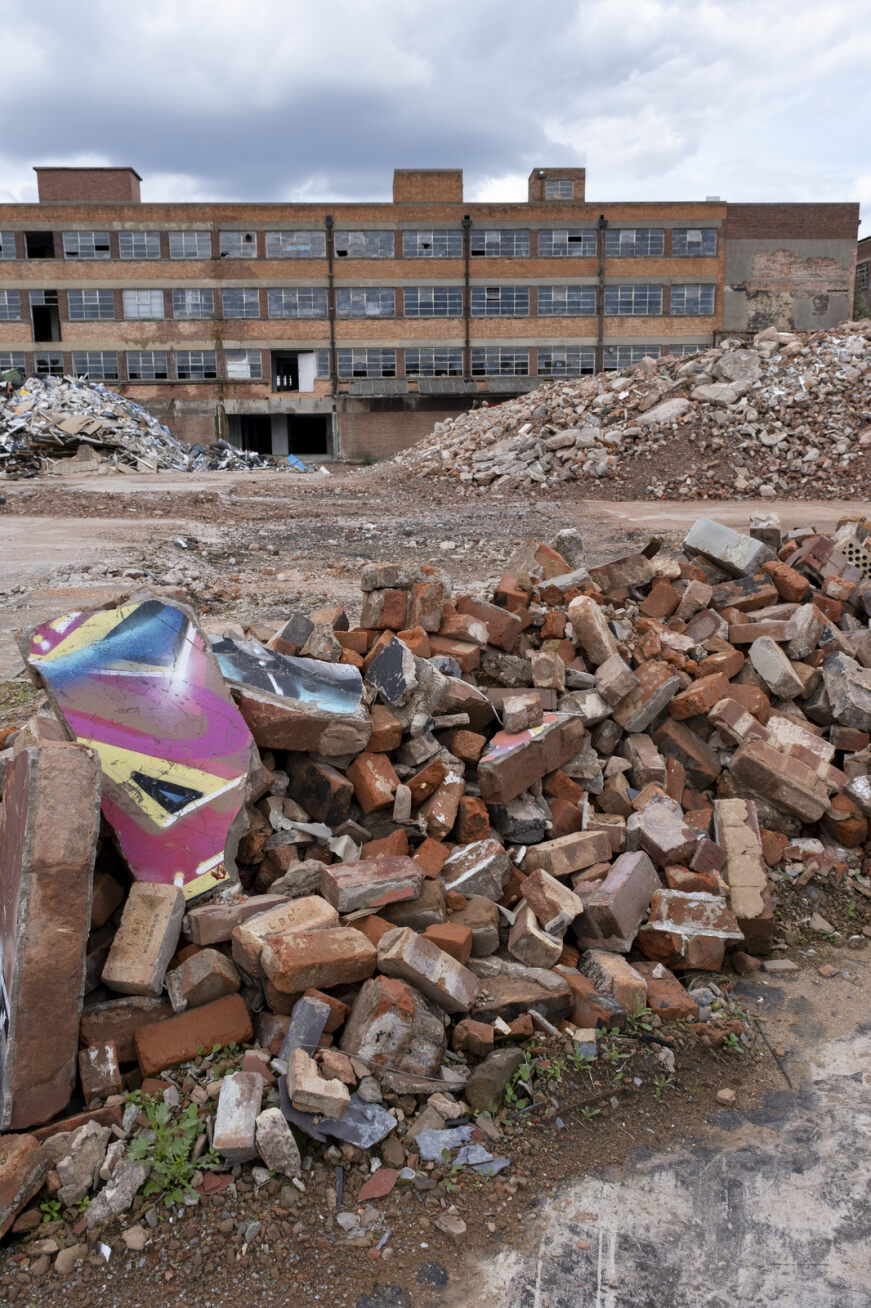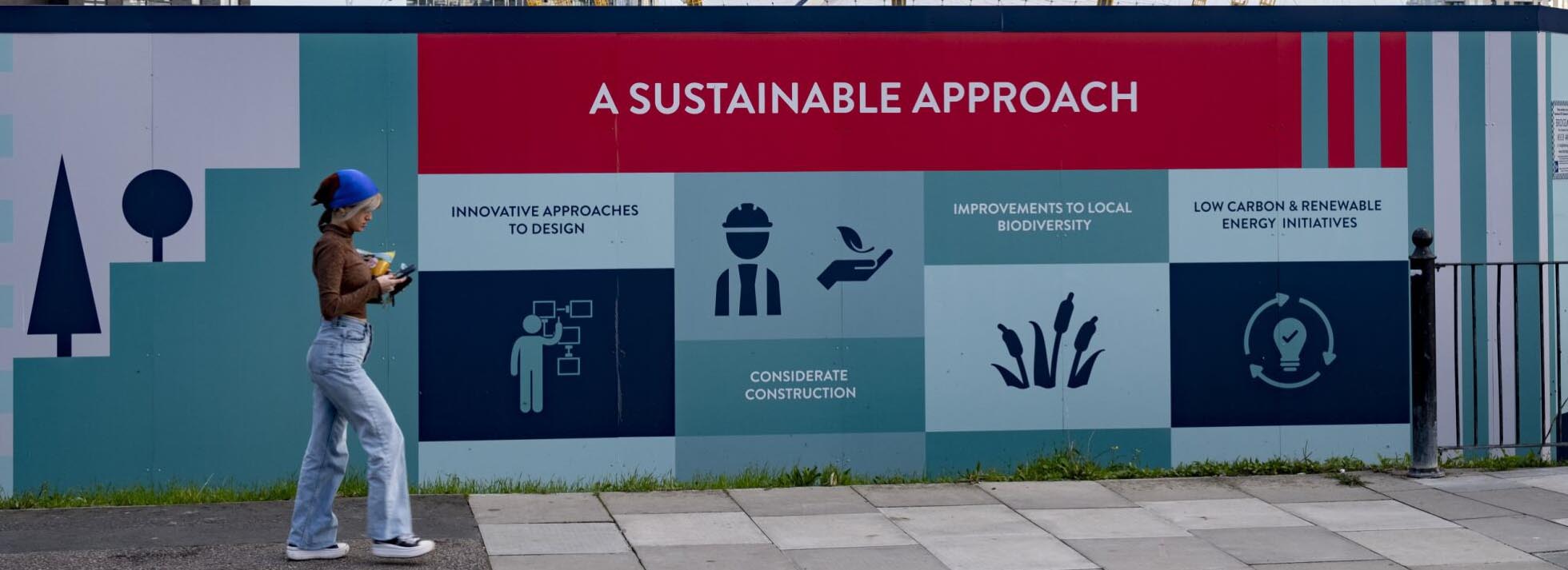Get updates from The Developer straight to your inbox Yes, please!
Little green lies: We need to talk about low-carbon construction
The fact is that sometimes building more sustainably will lead to financial gain and sometimes it won’t, writes Kieran Hawkins.

Kieran Hawkins is an architect and founding director at Cairn
I wrote an article about the financial benefits of low-carbon construction, stating that there were clear monetary advantages for a developer to build this way. But after some reflection, I decided not to publish the piece because it felt like greenwash.
The problem with the article was that it used a variety of data, much of it not peer reviewed, in a selective way to support an opinion that would benefit my business. At heart, it was a sales and marketing exercise.
The justification was that the more clients I could encourage to build sustainably, the better it would be for the world. I reflected on whether this white-lies approach was OK and decided it was a mistake. We need to share mistakes to learn as a group, but celebrating fallibility is hard to do when your business relies on confidence in your expertise.
The truth is more likely to be that sometimes building more sustainably will lead to financial gain and sometimes it won’t. The necessary behavioural shift cannot rely on economics alone; it needs to be driven by ethics or, more plausibly, by regulation. The market is unlikely to solve a problem that has been exacerbated by deregulated capitalism.
The necessary behavioural shift cannot rely on economics alone; it needs to be driven by ethics or, more plausibly, by regulation.
Nevertheless, I found a number of online articles to support the generalisation that sustainable buildings are commercially beneficial. Many of these articles leaned heavily on the same few reports and papers. The most commonly referenced was the World Green Building Trends 2016 report, a carefully considered and thorough document. It is, however, only one report and was based on data volunteered by 1,026 interested participants in 2015 – eight turbulent years before I wrote my article.
In the unpublished text, I wrote that "sustainable building practices result in significantly lower running costs for the owner, with savings of 25-50 per cent due to increased insulation and air-tightness."
While I admitted that "on average, this could cost between 10-15 per cent more in fees for the design team" and "construction could incur about 2-10 per cent additional costs," this was countered by the argument that "low-energy homes were found to have sales values between 7-18 per cent higher, and rental incomes between 5-12 per cent higher than conventional construction properties."
Many professionals make claims about the financial benefits of sustainable construction that are not subject to verification. This looseness can erode trust
Without robust research and the standards of analysis demanded by the peer review process, it is difficult to verify the rigour of this data. The sources that I used in preparing my original article were not chosen for their analytical quality but because they told me something that I wanted to hear.
Many professionals make claims about the financial benefits of sustainable construction that are not subject to verification. This looseness can erode trust, leading to projects that fail to meet expectations. The positivity also masks the difficulty of the task at hand: The radical reduction of the damage inflicted by our built environment to Earth’s living systems.
We should approach these goals with clear eyes. Handle with Care: How Useful Is the Research on Green Building Prices? is a 2014 paper by Patrick McAllister, now professor of real estate at the University of Reading. The paper summarises fundamental issues with reported correlations between sustainable construction and property prices.
McAllister notes that reports are of varied quality "due to the pioneering nature of early studies, lack of peer review in other cases, and difficulties assembling appropriate data sets".
The nature of the publications adds to the confusion, as McAllister notes, "some papers have been published in peer-reviewed journals (in which there is also a clear hierarchy); others are part of the ’grey’ literature - they are in the public domain, but have not been subject to peer review... others are published by professional bodies or interest groups without any formal review process."

McAllister was mainly looking at academic research papers but does make a number of points that remain applicable to my own abandoned text. We need to find ways to share successes, failures and new data without adding to the flood of grey literature in the field.
While two of the papers I referred to were in peer-reviewed journals, Environmental Economics and The Journal of Sustainable Real Estate, the data derived from a variety of property sectors, with the majority of the buildings constructed in the United States between 2003 and 2015. To use this when discussing UK housing projects in 2023 seems naive at best.
The remaining sources fall into the categories of grey literature or those published by professional bodies. I didn’t look too closely at the methodology of these sources and I certainly did not search for any papers that might show an opposing trend or more ambiguous findings; I was looking for support. The process recalls HL Mencken’s aphorism: "For every complex problem there is an answer that is clear, simple, and wrong."
Financial accuracy just might not be possible in low-carbon construction. McAllister noted in 2014 that "the research question in most price studies boils down to: all else being equal, how does being green affect the price of a building”
The problem for researchers lies in the words "all else being equal". There are so many entangled factors involved in construction finances, related to location, time and wider economic and cultural contexts. Prices are determined by supply and demand, and these are relentlessly dynamic and variable between locations.
In his 2022 article "The Relationship Between The Financial And Environmental Performance Of Real Estate Assets" McAllister found the situation unchanged. "Proof of price or other performance effects is likely to be elusive and precision to be spurious,” he wrote. Even discounting grey literature, McAllister warned against publication bias, a long-standing phenomenon that papers are more likely to be published if offering positive results that confirm a hypothesis. Those with inconclusive or contradictory results tend to be shelved.
Instead of asking how we can make money while making sustainable buildings maybe we should ask how we can be satisfied making fewer buildings and less money, using less energy and having fewer things
Rose-tinting can already be found in the UK construction industry’s pronounced optimism bias. This is a well-researched tendency to overestimate the positive aspects of a project, related to the costs, build duration and the benefits delivered when completed. Sustainable characteristics are a part of this, although they are not as well quantified as costs, for which the government’s recommended adjustment factor is as high as 51 per cent for non-standard building projects.
One of the primary barriers to low-carbon construction is the expectation that it will risk profits. I’m not suggesting that there is no relationship between sustainable construction and financial gains. There is emerging evidence that this can be the case although it is problematic to precisely predict. But the evidence in this field is not clear enough to justify the confidence in much of the grey literature.
This ambiguity should not hinder us. Realistically, finance is unlikely to be the most helpful driver for such an ethical issue. Emotions such as doubt and loss could serve us better. Confidence is not a helpful emotion. It could be more productive to harness uncertainty and grief – the sanest reactions to unfolding events – to find ways of accepting that less is enough and commit to finding new ways to practice.
Instead of asking how we can make money while making sustainable buildings maybe we should ask how we can be satisfied making fewer buildings and less money, using less energy and having fewer things. This is a significant shift in perspective and motivation. Feeling sad could be helpful to fuel the change.
For ethical reasons, I believe that we should be building in a radically different way. Sometimes the figures just do not support these ethics. Sometimes we have to make tough choices between doing what is profitable and doing what is right. Too much optimism and too great a focus on the balance sheet can stop us from feeling, and grief could be essential to moving forward. Best not to be a salesman at a family wake.
In the words of Nick Cave: "I think if we can move beyond the anxiety and dread and despair, there is a promise of something shifting ... I have hope. Collective grief can bring extraordinary change, a kind of conversion of the spirit, and with it a great opportunity. We can seize this opportunity, or we can squander it and let it pass us by."
Kieran Hawkins is an architect and founding director at Cairn.
If you love what we do, support us
Ask your organisation to become a member, buy tickets to our events or support us on Patreon
Sign up to our newsletter
Get updates from The Developer straight to your inbox
Thanks to our organisation members
Become a member
© Festival of Place - Tweak Ltd., 124 City Road, London, EC1V 2NX. Tel: 020 3326 7238
